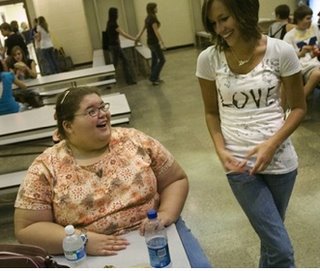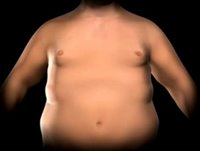Physicians debate best candidates for gastric bypass

Washington, D.C.
Recent studies showing that gastric bypass surgery extends the lives of obese patients is forcing surgeons to make tough decisions about who should go under the knife and who shouldn't.
Internists, cardiologists and endocrinologists, more than ever, are referring patients who traditionally haven't been candidates for the weight-loss surgery, also called bariatric surgery.
"I am being asked to operate on 78-year-olds with co-morbidities of heart disease and diabetes," said Dr. Edward H. Phillips, executive vice chairman of the Department of Surgery and a surgeon at the Center for Weight Loss at Cedars-Sinai Medical Center in Los Angeles. Phillips questions whether these patients will benefit, or if the damage has already been done.
ad_icon
"So, while it is obvious a 30-year-old will benefit, at what age is too old?" he asked.
The success of gastric bypass is also stoking debate about its use as a treatment for type 2 diabetes. Mounting evidence suggests this type of surgery may dramatically improve patients with the disease, freeing them from a lifetime of diabetes medications.
"There's more acceptance now of the concept that bariatric surgery is a truly life-saving type of therapy rather than just a way to shed pounds," said Dr. Francesco Rubino, chief of Gastrointestinal Metabolic Surgery at Weill Cornell Medical College in New York City.
Still, more long-term studies are needed, and clinicians and policymakers must reach a consensus on who should have access to this type of surgery, noted Rubino, who directed the 1st World Congress on Interventional Therapies for Type 2 Diabetes, held in New York City in September.
An estimated 205,000 bariatric surgeries were performed in the United States in 2007, according to the American Society for Metabolic & Bariatric Surgery (ASMBS). That's an increase of almost 20 percent from two years earlier.
If patients commit to making necessary changes in their diet and exercise regimens, gastric bypass surgery can provide long-term, consistent weight loss, according to the Mayo Clinic.
Not only does it help shed pounds, but a pair of studies published last year in the New England Journal of Medicine found that it can help obese people live longer.
One study, led by Ted Adams of the University of Utah School of Medicine, tracked almost 16,000 obese people, half of whom had weight-loss surgery. After an average of seven years, the death rate was 40 percent lower for people who had the surgery compared with those who didn't. Diabetes-related deaths were cut by a whopping 92 percent.
The other study, led by a Swedish team, involved more than 6,000 obese patients. After an average follow-up of more than a decade, those who had bariatric surgery were 29 percent less likely to die than those who did not undergo surgery.
Labels: gastric bypass surgery, proper candidate






